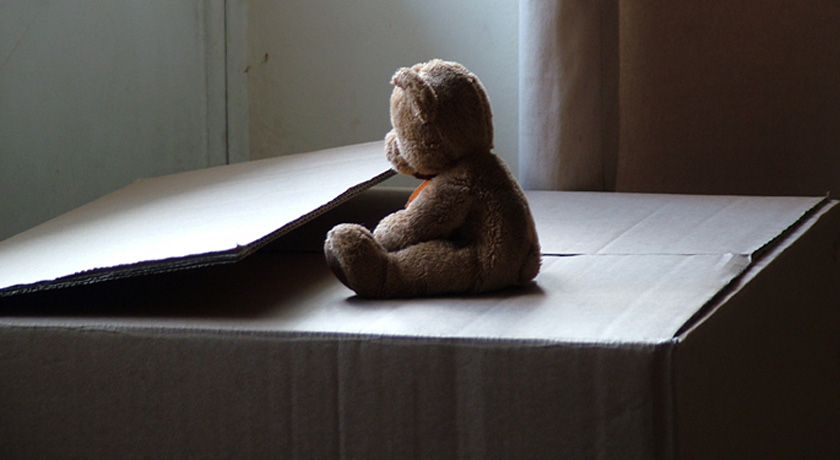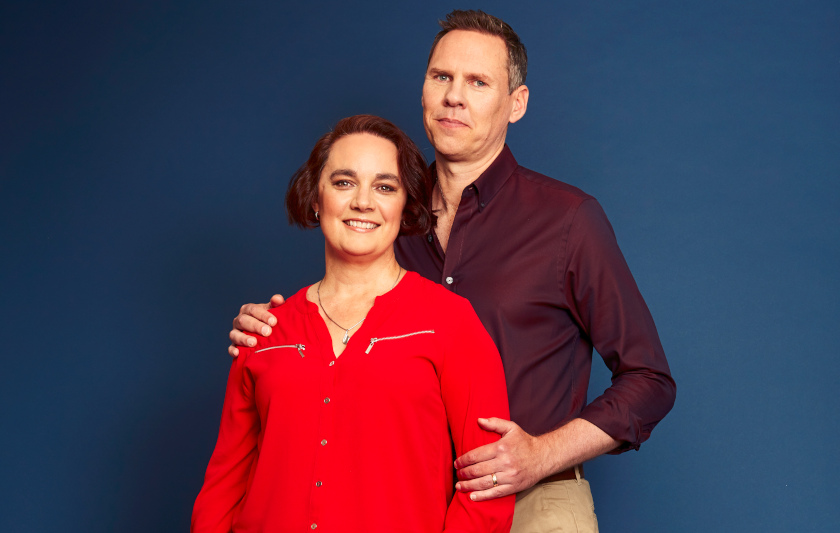How to Help a Friend Experiencing Infertility
Since going public with our own story of childlessness Merryn and I are often asked how to support a family member or friend going through infertility. This video addresses some of those questions.
Originally filmed as a live webinar for church leaders, this hour-long video explores the isolation, emotions and ethical challenges faced by an infertile couple. You’ll hear Merryn share why she doesn’t go to church on Mothers Day, and why she now offers to babysit others’ kids. You’ll hear how infertility can shatter a man’s sense of masculinity, and along the way hear suggestions on how to help your friend.
Here’s a rundown of what we explore in the video, with time references in case you’d like to skip ahead. Thanks for caring enough about your friend to want to help. If you’re facing infertility yourself, you may like to see another webinar we did specifically for you.
02:00 The Silent Epidemic of Infertility
Picture: Verkeorg, CC BY-SA 2.0
- The World Health Organisation suggests 1 in every 4 couples (25%) in developing countries are affected by infertility in some way. It’s impacting more people than you realise
- The experience can be incredibly isolating due to shame or guilt, or the emotional exhaustion involved
- Remember the male involved. Infertility can unduly affect one’s masculinity, which can be difficult to talk about (my unexpected reverse experience is shared at 54:00)
- What can help: caring, sensitive community that provides both support and solitude when it’s needed
09:00 Understanding the Experience
- Emotional exhaustion: the cycle of expectation-and-disappointment when unsuccessfully trying for a child becomes more profound the longer it continues. InVitro Fertilisation, waiting for adoption, and other paths have their own toll. One’s whole life soon begins to revolve around childlessness
- Physical demand: procedures like IVF can be incredibly invasive
- Spiritual testing: infertility can raise questions about God’s goodness, about ourselves and our identities, and lead us to face demanding ethical questions
- What can help: being sensitive to where your friend is at. Gently checking in on their well being, not constantly asking for pregnancy status updates. Helping them walk through the challenges involved
12:30 Specific Challenges for Churches
- Churches are often geared around families, leaving childless couples feeling their loss. It can be difficult for a woman to know her place in the world and church when children aren’t involved
- Mothers Day can be particularly difficult (for self-care reasons, Merryn doesn’t go to church on Mothers Day)
- Fathers Day can be difficult for men too
- What can help: be the alternative family Jesus called the Christian community to be. Don’t assume a woman would like to do children’s church or creche because it might help fill the void for her. But don’t assume she wouldn’t either. Ask her (the same goes for men)
17:00 Create a Safe Space to Share Doubt and Disappointment

- Christian couples experiencing infertility are tired of hearing success stories. Christian leaders (and others) should be aware that sharing stories of answered prayer alone can leave those without a miracle depressed
- What can help: don’t try and fix someone’s doubts about God quickly. Listen, explore, journey with them as they wrestle. Celebrate the faith of those who follow Jesus in the difficult, not just the miraculous, times. Create a safe space for the couple to share their questions and doubts
23:00 The Ethical Dimensions of Fertility Treatments
- Christian couples are often given one of three answers to the problem of infertility: 1) Do whatever it takes to get a child (ie ignore any ethical quandaries involved), 2) Just accept whatever happens as God’s will, or 3) Just wait for a miracle. Each is a simplistic answer that avoids helping them work through the issues
- These ethical decisions can be stressful on each person and on the marriage
- Help the couple discover ethical options for starting a family, recognising that there are differing perspectives
- What can help: help the couple make a decision they can live with. And help them keep their marriage strong
29:30 Be Careful with Those Miracle Baby Stories in the Bible
Photo: loneliness by Lily – CC BY 2.0
- Remember the context of biblical ‘miracle baby’ stories like Sarah (Genesis 17-18), Hannah (1 Samuel 1) or Elizabeth (Luke 1). In each case the story is about a key person in God’s grand plan entering the world, not God promising to give every infertile couple a child
- What can help: believe in a God of miracles, but don’t give people false hope
34:30 And Be Careful with Personal Prophecies
- Too many couples have been devastated by well-meaning people giving a ‘prophecy’ of them having children, sometimes even predicting dates of birth. In many cases, it is someone’s own hopeful desires speaking rather than God, and can lead to spiritual, emotional and physical crisis for the couple involved
- What can help: some churches have policies barring prophecy over ‘births, deaths and marriages’. It’s a good guideline
41:00 Webinar Audience Questions
- What should a church leader do about Mothers Day?
- Should the possibility of infertility be raised with couples in pre-marital counselling?
- How could we facilitate mentoring in this area in our church?
- Should a specific home group for infertile couples be created?
- How can we specifically help men wrestling with this?
In Addition
Let me add to the above some excellent advice from the folks at Saltwater and Honey, a blog written for and by those experiencing infertility. They suggest helping your childless friend in these ways:
1. Listen
‘Make sure you listen more than you speak. This conversation isn’t about you or your opinions but about supporting your friend’
2. Know your audience when talking about your own family
‘If you talk about your kids all the time you’re talking about the one thing they don’t have in common with you’
3. Be sensitive about telling your friend you’re pregnant
‘Tell your friend first before you announce it publicly… Don’t tell them in person (a text, email or letter gives them time to process the news)… Don’t show them your scan photos…’
4. Bite your tongue
‘Most people have a story about someone who couldn’t have children and then did… There’s always some weird herb or drug people have taken…’ In short, go easy on advice-giving
5. Stop trying to find reasons why
‘Faith doesn’t always resolve, we may never have our ‘answer’ and this is the complex journey you need to walk with your friend’
6. Infertility doesn’t always go away
‘It may be years since a diagnosis and your friend may seem much stronger, but this doesn’t mean they’re no longer experiencing loss’
7. Talking helps
‘You need to let your friend get angry, complain, cry and say what’s on their heart… help them let it out, then give them tea and cake’
8. Have fun
‘Organise some fun activities with them, get some dates in the diary and have a laugh. It gives them a break from obsessing over baby stuff and helps them remember there are still some good things in life to enjoy’
9. Be an advocate
‘At work, in friendship groups, church communities and family gatherings you can change the conversation when it’s been dominated by child birth stories and cracked nipples for the last half an hour…’








Lisa @ Amateur Nester
Sheridan, Thank you SO MUCH for posting this video. This is an incredibly helpful and much-needed resource. I wrote a blog post for NIAW about infertility awareness in church, and I’ve just updated it to include a link to the video at the end. http://www.amateurnester.com/2016/04/start-asking-church-and-infertility.html
I’ll also be sharing this on my social media next week. I’m so grateful to you and Merryn and to RBC Ministries for doing this. God bless you.
Sheridan Voysey
And thank YOU Lisa for all you do to help couples walk this difficult road.
(Friends, make sure you check out Lisa’s website – it’s excellent)